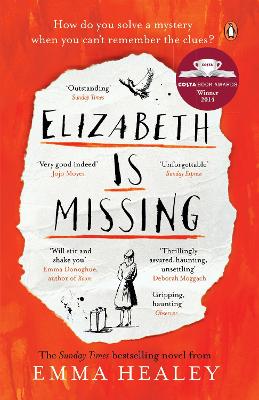
pamela
Interspersed with Maud's present are her memories of the disappearance of her sister Sukey in the aftermath of WWII. I found this element to be the weakest part of the novel. The characterisation of Maude as a child did not have enough difference to Maud as an old woman with dementia, meaning the divide between her earlier life and her declining mental health was not contrasting enough. The resolution of the 70 year old mystery seemed almost convenient and too easy. I would have preferred to have Emma Healey focus her story more on Maud in the present; her relationship with her family was very moving, and the support she receives from her daughter and granddaughter was truly touching.
I found elements of this novel very difficult to read, and yet I feel somehow this was the point. I disliked the way that everyone at the beginning of the narrative seemed to know exactly where Elizabeth was but chose not to share it, or seemed to be intentionally vague. This irritation however was most likely intentional as we only have Maud as the narrator. We are frustrated because we don't get the information we want, and yet it's likely she's recently had it and simply doesn't recount it in the narrative because she can't remember. It was a brilliant stroke to almost make the reader feel as if they are only getting parts of the story, creating an idea that we can understand what Maud is feeling.
It is not the kind of book I would usually read, however I'm glad I branched out to give this one a go. It was brilliantly written, equal parts touching and irritating.
